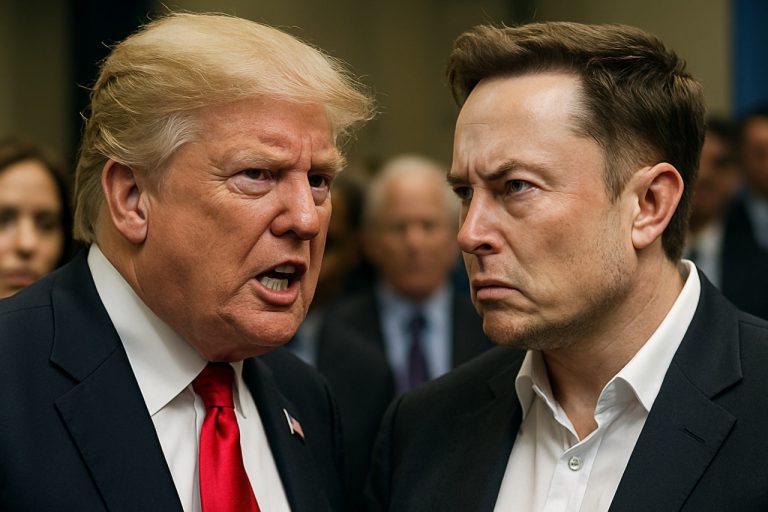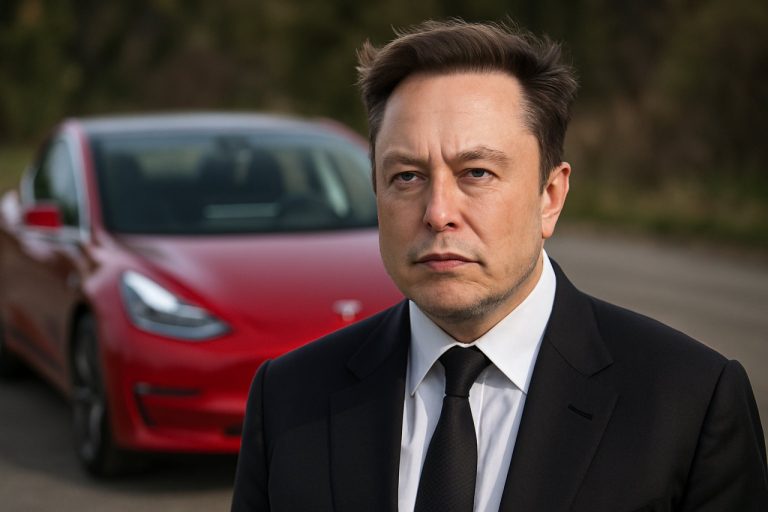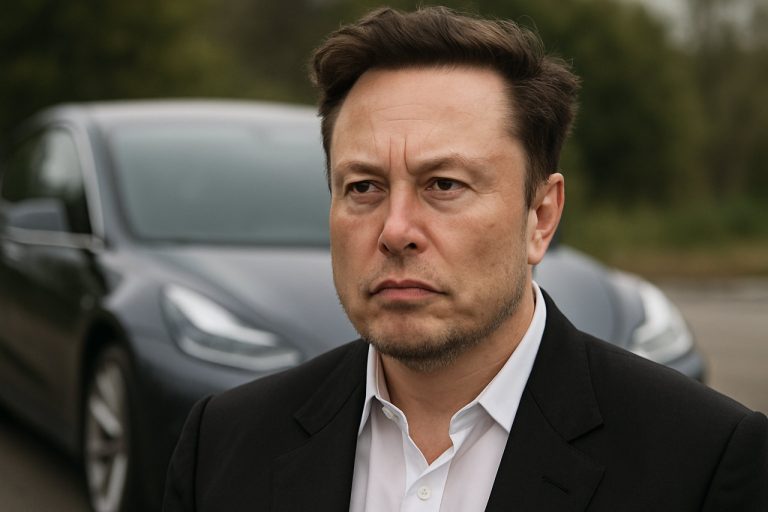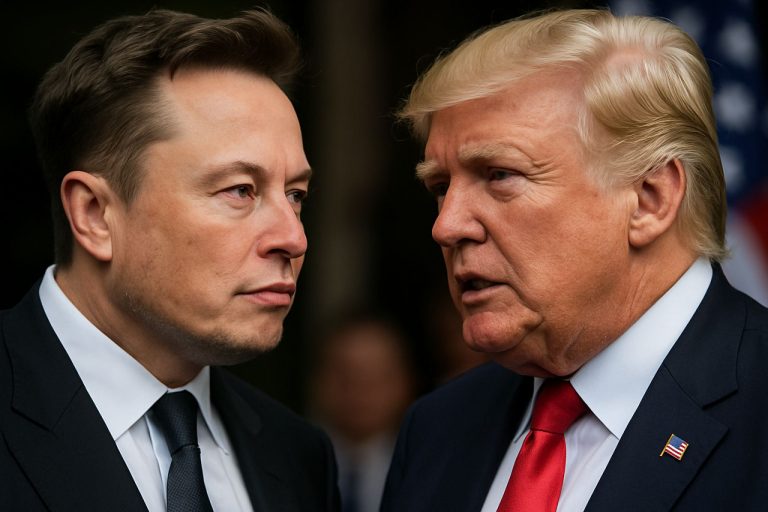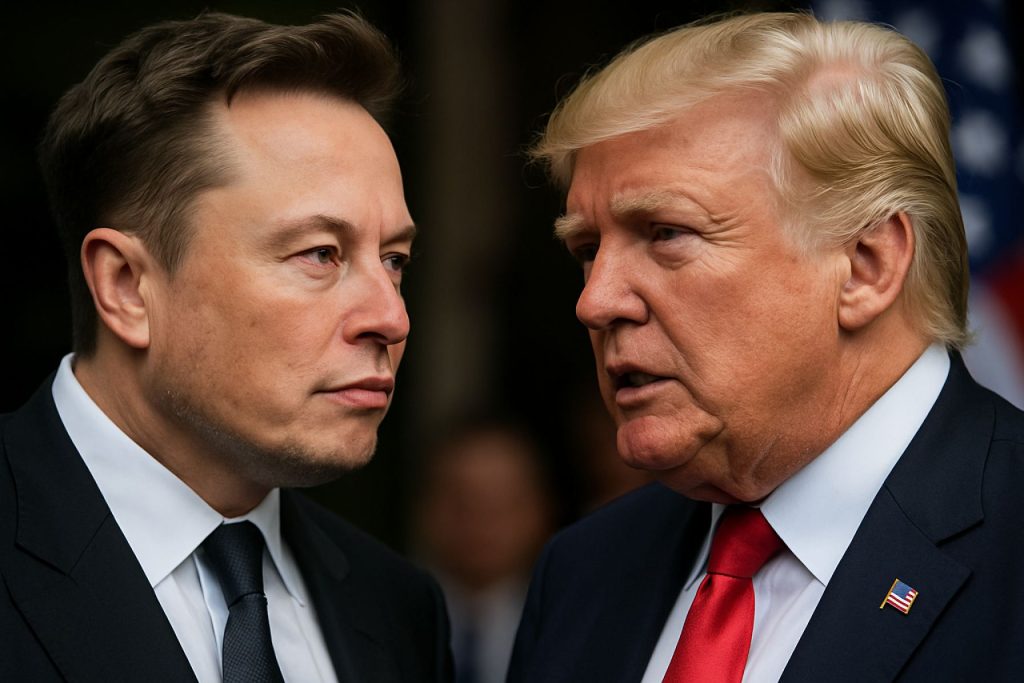
Sparks Fly as Elon Musk and Donald Trump Trade Blows Over Electric Vehicle Mandate: What’s at Stake for Drivers and the 2025 Election?
Tesla CEO Elon Musk and President Donald Trump go head-to-head over a pivotal EV tax bill—here’s how it impacts your wallet and the auto industry.
• EV tax credit set to expire in December 2025, not 2032 as planned
• New annual fees: $250 for EVs, $100 for hybrids (if bill passes)
• EPA targets: 50% of new car sales must be electric by 2032
A fresh feud just shocked Washington—Elon Musk and Donald Trump are battling over a newly-passed “Big Beautiful Bill” that could change the future of EVs in America.
This week, Musk contradicted Trump’s claim that he supported the landmark tax bill, blasting it on X (formerly Twitter) for sneaking in “devastating” electric vehicle changes. Trump fired back from the Oval Office, accusing Musk of political betrayal and blaming him for “Trump derangement syndrome.”
But what exactly is in this controversial EV mandate—and why is it turning allies into adversaries?
What is the 2025 EV Tax Credit War All About?
The tension circles around a sneaky clause in Trump’s signature tax legislation—Section 112002, to be exact. The original EV tax credit for buyers was supposed to run until 2032. Now, it’s getting axed by the end of 2025, a full seven years early.
This could spell financial pain for anyone planning to buy a Tesla or any electric vehicle. Unless you purchase before December 31, 2025, you’ll lose thousands in clean vehicle credits. Plus, the new bill slaps an annual $250 fee on all EV owners and $100 for hybrid drivers to help fund America’s roadways.
For more on EV incentives, visit the official IRS and EPA websites.
Why Are Musk and Trump Feuding?
Elon Musk, who briefly held a role in Trump’s cabinet, says the bill blindsided him—insisting he never saw the draft and calling the rushed passage “undemocratic.” Trump counters that Musk was in the loop all along and only turned against the bill when its impact on Tesla’s bottom line became obvious.
The fallout is personal and political. With more than 1.3 million Teslas sold in the US and the 2024 election fresh in memory, Musk accuses Trump of forgetting who “helped” him win. Trump claps back, claiming the Tesla boss only cares about government handouts and that the new law protects American autoworkers.
How Could This Bill Impact Car Buyers and the Auto Industry?
– Buyers may rush to snap up EVs before credits disappear in 2026.
– Tesla and rivals like Ford, GM, and Hyundai may see a dip in US EV demand—and a scramble to adjust pricing.
– Annual state fees could slow EV adoption further as consumers calculate long-term costs.
At the same time, the EPA’s strict new emission limits ratchet up pressure on automakers to sell more EVs, despite waning government incentives.
Q&A: What Do Drivers Need to Know Right Now?
Q: Is there still time to claim the EV tax credit?
A: Yes—if the bill is signed into law, you have until December 31, 2025, to buy an eligible EV and claim credit.
Q: Will these changes survive legal challenges?
A: Advocacy groups and automakers could challenge the rushed bill in the courts or lobby for amendments.
Q: Could states offer their own EV credits?
A: It’s possible. Some states, like California, continue to offer generous local incentives, regardless of federal decisions.
How to Prepare: Beat the EV Clock in 2025
If you’re considering an electric vehicle, act now. Compare models and finalize purchases before the credit disappears. Keep track of updates at energy.gov and consider state-level savings.
Stay ahead: Keep tabs on the Musk–Trump showdown and changing auto rules at major US news sources like NYTimes and WSJ.
EV Tax Credit Survival Checklist
- Research eligible EV models and confirm credit amounts (check IRS.gov)
- Finalize EV purchase by December 31, 2025
- Budget for new annual EV or hybrid fees in your state
- Monitor news from Tesla, EPA, and White House for policy changes
- Consult your tax professional for the latest guidance
Don’t let shifting laws blindside you—get informed, act fast, and secure your clean vehicle savings before time runs out.
